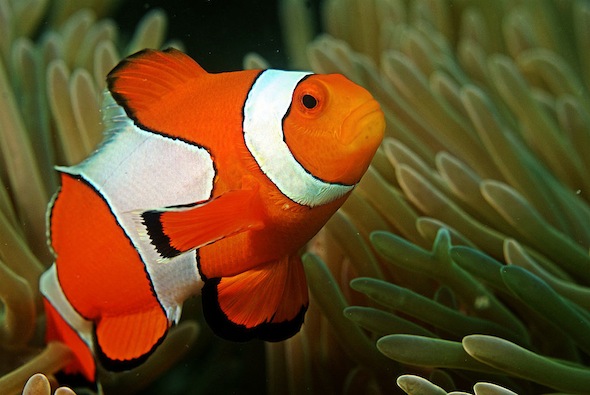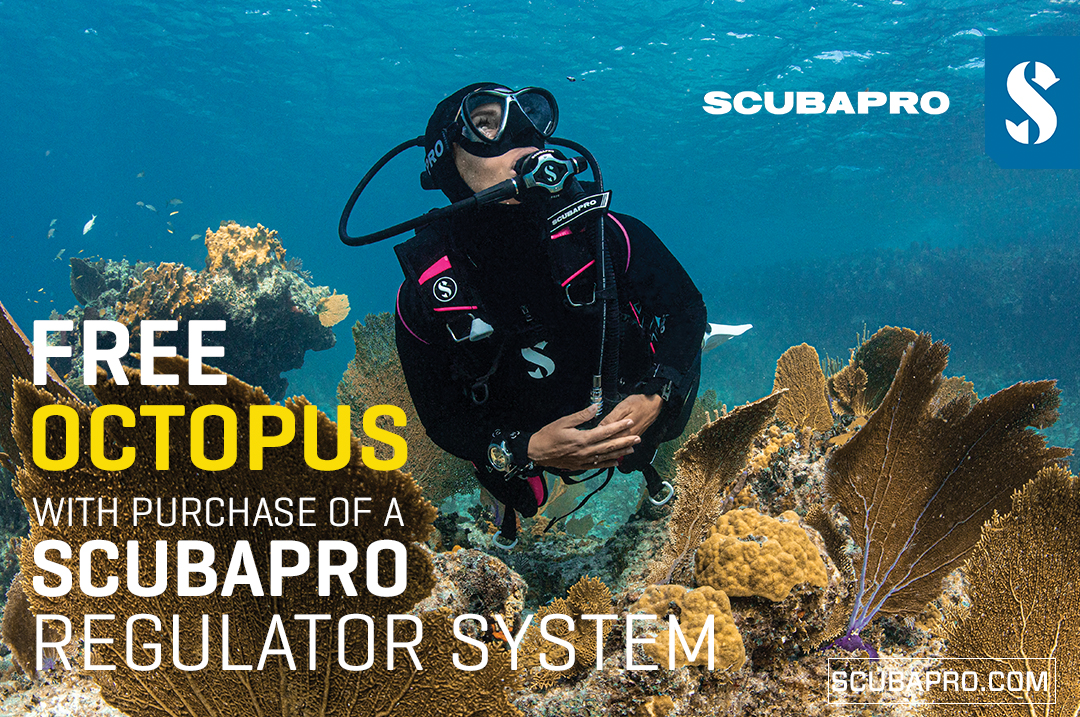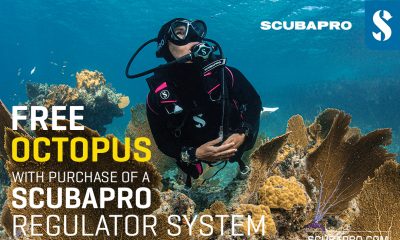News
Fish On Acid Lose Fear Of Predators

Coral reef fishes exposed to acid oceans lose their sense of smell – and their sense of caution – and are more likely to fall prey to natural enemies, according to new research in Nature Climate Change.
The finding is based on observations of the behaviour of four species at a reef off the coasts of Papua New Guinea where natural carbon dioxide seeps out of the rock, and confirms a series of other such studies in the last year.
A cool volcanic discharge in the reef has served as a natural laboratory for years: water in the region reaches an average pH of 7.8. This standard measure of acidity is co-incidentally the level predicted for all the world’s oceans by 2100, as atmospheric carbon dioxide levels continue to rise, according to the Intergovernmental Panel on Climate Change.
Australian and US scientists observed the fishy behaviour from a boat moored above the reef, and also tested the fish on board the vessel. What they observed was that, away from the volcanic bubbles of carbon dioxide, in conditions of more normal ocean chemistry, damsel fish and cardinal fish seemed able to smell predators and stayed in sheltered places in the reef to avoid becoming prey.
Fish from the waters richer in carbonic acid seemed not to sense the presence of predators, and were more likely to venture into dangerous waters.
After a sudden scare that sent all the fish racing for cover, the fish from the bubble reef ventured forth much sooner. In normal circumstances, such fish spend 80% of their time under cover.
The bubble reef fish spent at most only 12% of their time in hiding. Mortality accordingly was five times higher.
“Their sense of smell was acutely affected in CO2-rich waters in ways that gravely threaten their survival,” said Alistair Cheal of the Australian Institute of Marine Science.
“We were able to test long-term realistic effects in this environment,” said another author, Danielle Dixson of the Georgia Institute of Technology in the US. “One problem with ocean acidification research is that it’s all laboratory-based, or you’re testing something that’s going to happen in 100 years’ time with fish that are from the present day, which is not actually accurate.”
The reasoning is that the change in pH levels disrupts a neuroreceptor in the fishes’ brains and affects faculties or alters behaviour. Similar experiments with Californian rockfish have demonstrated much the same effect.
But increased acidification of the oceans is also likely to affect shellfish and corals in other ways, and research in the Great Barrier Reef region of Australia has documented a dramatic behaviour change in a jumping snail that suggested impaired decision-making capability as pH levels alter.
Sea water is already 30% more acidic that it was at the start of the Industrial Revolution 200 years ago. The rate of change is at least 100 times faster than at any time in the last 650,000 years.
The bubbling waters of the reef under test are not unique – such localized carbonic acid seeps occur in many places all over the world – and the fact that predators might find easy pickings in such places makes no real difference to population levels in the vastness of the rest of the ocean. But such experiments raise the question: can ecosystems adapt to changing water chemistry?
“Continuous exposure does not reduce the effect of high CO2 on behaviour in natural reef habitat and this could be a serious problem for fish communities in the future when ocean acidification becomes widespread as a result of continued uptake of anthropogenic CO2 emissions,” the authors conclude.
Source: www.truthdig.com
News
Dive Worldwide Announces Bite-Back as its Charity of the Year

Over the next 12 months, specialist scuba holiday company Dive Worldwide will be supporting Bite-Back Shark & Marine Conservation with donations collected from client bookings to any one of its stunning dive destinations around the world. The independently-owned operator expects to raise £3000 for the UK charity.
Manager at Dive Worldwide, Phil North, said: “We’re especially excited to work with Bite-Back and support its intelligent, creative and results-driven campaigns to end the UK trade in shark products and prompt a change in attitudes to the ocean’s most maligned inhabitant.”
Bite-Back is running campaigns to hold the media to account on the way it reports shark news along with a brand new nationwide education programme. Last year the charity was credited for spearheading a UK ban on the import and export of shark fins.
Campaign director at Bite-Back, Graham Buckingham, said: “We’re enormously grateful to Dive Worldwide for choosing to support Bite-Back. The company’s commitment to conservation helps set it apart from other tour operators and we’re certain its clients admire and respect that policy. For us, the affiliation is huge and helps us look to the future with confidence we can deliver against key conservation programmes.”
To launch the fundraising initiative, Phil North presented Graham Buckingham with a cheque for £1,000.
Visit Dive Worldwide to discover its diverse range of international scuba adventures and visit Bite-Back to learn more about the charity’s campaigns.
MORE INFORMATION
Call Graham Buckingham on 07810 454 266 or email graham@bite-back.com
Gear News
Scubapro Free Octopus Promotion 2024

Free Octopus with every purchase of a SCUBAPRO regulator system
Just in time for the spring season, divers can save money with the FREE OCTOPUS SPRING PROMOTION! Until July 31st SCUBAPRO offers an Octopus for free
with every purchase of a regulator system!
Get a free S270 OCTOPUS with purchase of these combinations:
MK25 EVO or MK19 EVO with A700
MK25 EVO or MK19 EVO with S620Ti
MK25 EVO or MK19 EVO with D420
MK25 EVO Din mit S620Ti-X
Get a free R105 OCTOPUS with purchase of the following combinations:
MK25 EVO or MK19 EVO with G260
MK25 EVO or MK17 EVO with S600
SCUBAPRO offers a 30-year first owner warranty on all regulators, with a revision period of two years or 100 dives. All SCUBAPRO regulators are of course certified according to the new European test standard EN250-2014.
Available at participating SCUBAPRO dealers. Promotion may not be available in all regions. Find an authorized SCUBAPRO Dealer at scubapro.com.
More information available on www.scubapro.com.
-

 News3 months ago
News3 months agoHone your underwater photography skills with Alphamarine Photography at Red Sea Diving Safari in March
-

 News3 months ago
News3 months agoCapturing Critters in Lembeh Underwater Photography Workshop 2024: Event Roundup
-

 Marine Life & Conservation Blogs3 months ago
Marine Life & Conservation Blogs3 months agoCreature Feature: Swell Sharks
-

 Blogs2 months ago
Blogs2 months agoMurex Resorts: Passport to Paradise!
-

 Blogs2 months ago
Blogs2 months agoDiver Discovering Whale Skeletons Beneath Ice Judged World’s Best Underwater Photograph
-

 Gear Reviews2 weeks ago
Gear Reviews2 weeks agoGEAR REVIEW – Revolutionising Diving Comfort: The Sharkskin T2 Chillproof Suit
-

 Marine Life & Conservation2 months ago
Marine Life & Conservation2 months agoSave the Manatee Club launches brand new webcams at Silver Springs State Park, Florida
-

 Gear Reviews3 months ago
Gear Reviews3 months agoGear Review: Oceanic+ Dive Housing for iPhone
















